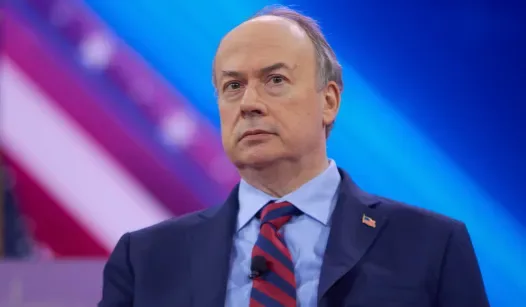In recent months, the political landscape in the United States has been rife with controversy, particularly surrounding the actions of various political figures and the legal strategies employed against them. One notable case that has drawn significant attention is that of Jeffrey Clark, a former official at the Department of Justice. This situation highlights the ongoing tensions between political parties and raises important questions about the use of legal mechanisms in political conflicts.
Jeffrey Clark, who served as the acting head of the Justice Department’s Civil Division, has found himself at the center of a legal storm. His involvement in efforts to challenge the 2020 election results has sparked a fierce backlash from Democrats, who argue that his actions undermined the integrity of the electoral process. As a result, Clark has faced a barrage of legal challenges that many critics are labeling as “lawfare”—the use of legal systems and principles to achieve a political end.
The term “lawfare” has gained traction in recent years, particularly in political discourse. It refers to the strategic use of legal actions to damage an opponent or to gain a political advantage, often blurring the lines between legal accountability and political maneuvering. In Clark’s case, Democrats have pursued various legal avenues to hold him accountable for his role in the efforts to overturn the election results, alleging that he acted in bad faith and violated his ethical obligations.
One of the most significant developments in this saga has been the indictment of Clark alongside other former Trump administration officials. This indictment has been met with mixed reactions across the political spectrum. Supporters of the Democrats argue that it is a necessary step to uphold the rule of law and protect democracy, while critics contend that it represents an overreach of legal authority motivated by partisan interests.
The implications of this case extend beyond Clark himself; they reflect broader trends in American politics where legal battles are increasingly becoming a tool for political warfare. As both parties navigate this turbulent terrain, it raises critical questions about the role of the judiciary in political disputes and the potential consequences for democratic institutions.
As the situation continues to unfold, it remains essential for citizens to stay informed about the developments surrounding Jeffrey Clark and the broader implications of lawfare in American politics. This case serves as a reminder of the complex interplay between law and politics, and how the pursuit of justice can sometimes become entangled with political agendas.
In conclusion, the legal challenges facing Jeffrey Clark are emblematic of a larger trend within American politics, where legal strategies are wielded as weapons in partisan conflicts. As this situation evolves, it will be crucial for the public to engage with these issues critically and to consider the long-term effects of such legal battles on the political landscape and the integrity of democratic processes.
